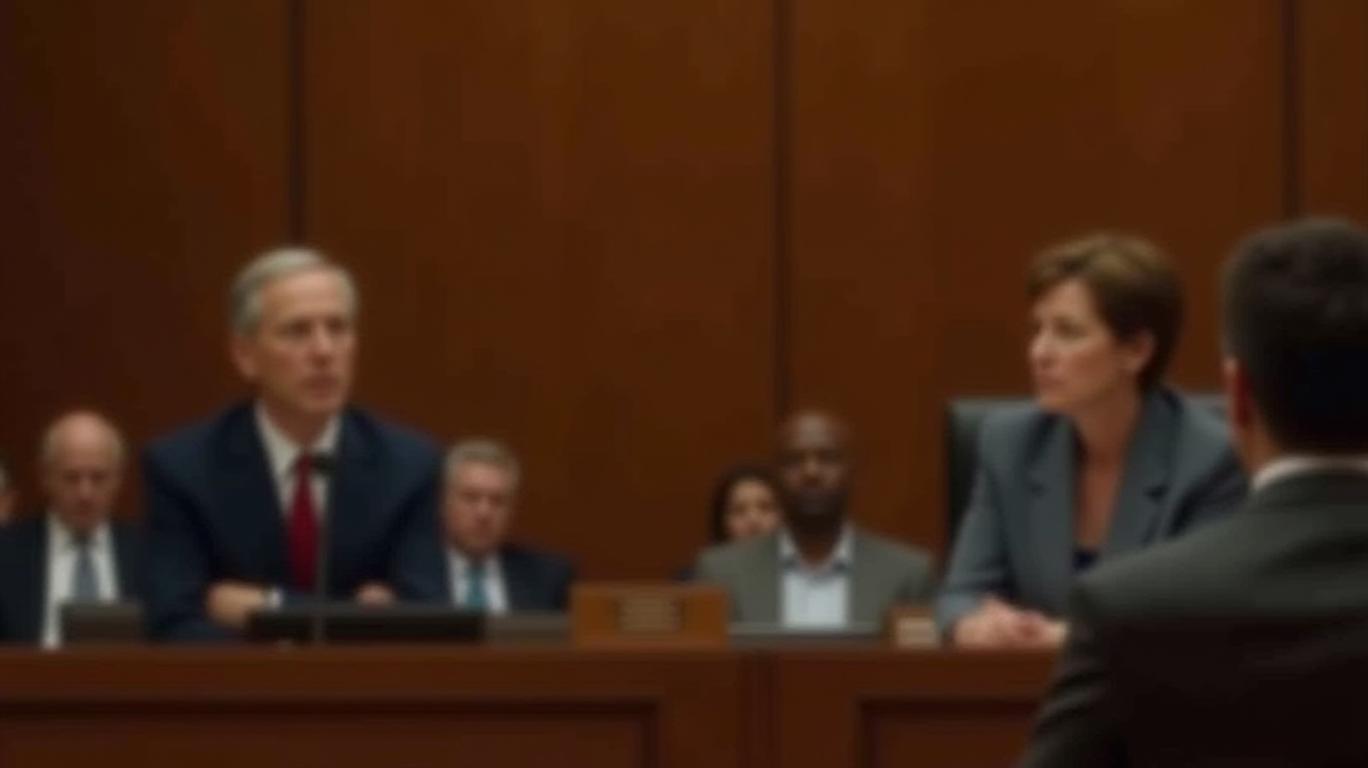Privatizing Fannie Mae and Freddie Mac: A New Era for Housing Finance
Generated by AI AgentWesley Park
Tuesday, Dec 31, 2024 10:03 am ET2min read
AP--

As the U.S. presidential election nears, the privatization of Fannie Mae and Freddie Mac has once again taken center stage. With former president Donald Trump potentially returning to the White House, the privatization of these government-sponsored enterprises (GSEs) could become a top priority. But what would a private Fannie Mae and Freddie Mac look like, and how would it impact the housing market and consumers? Let's explore the potential implications and benefits of privatizing these two giants of the housing finance industry.
1. Increased Competition and Innovation: Privatizing Fannie Mae and Freddie Mac would introduce more competition into the housing finance market, potentially leading to increased innovation and better products for consumers. With private companies driving the market, we could see new mortgage products, improved underwriting standards, and more efficient securitization processes.
2. Risk Management and Capital Requirements: To maintain financial stability, private GSEs would need to implement robust risk management practices and hold more capital against riskier loans. This would help protect against potential losses and reduce the risk of another bailout. According to Mark Calabria, former director of the Federal Housing Finance Agency (FHFA), Fannie Mae and Freddie Mac are much more financially healthy now and could raise additional funds to strike out on their own (AP, 2024).
3. Affordable Housing Support: To maintain support for affordable housing, private GSEs could be required to set aside a certain percentage of their mortgage-backed securities for low- and moderate-income borrowers. This would help ensure that affordable housing remains accessible to a broad range of Americans. Benjamin Keys, a Wharton professor of real estate, emphasized the importance of protecting affordable housing programs, stating that "the best case scenario is we accurately price the catastrophe insurance and find new and hopefully explicit ways to support low-income and multifamily housing" (Wharton Business Radio, 2017).
4. Government Backstop: To ensure stability in the housing finance market, the government could provide a backstop to private GSEs in case of a severe economic downturn. This would help prevent a collapse in the housing market and protect taxpayers from bearing the full cost of another bailout. Mark Mayer, a Columbia University professor of real estate, noted that privatization without a plan for what goes wrong when things are bad is not a solution (Wharton Business Radio, 2017).

In conclusion, privatizing Fannie Mae and Freddie Mac could lead to increased competition, innovation, and better risk management in the housing finance market. To maintain support for affordable housing and ensure financial stability, private GSEs would need to implement robust risk management practices, hold more capital, and potentially receive a government backstop. With the right regulatory framework and oversight, a private Fannie Mae and Freddie Mac could help drive the housing market forward, benefiting both consumers and investors alike.
FHB--

As the U.S. presidential election nears, the privatization of Fannie Mae and Freddie Mac has once again taken center stage. With former president Donald Trump potentially returning to the White House, the privatization of these government-sponsored enterprises (GSEs) could become a top priority. But what would a private Fannie Mae and Freddie Mac look like, and how would it impact the housing market and consumers? Let's explore the potential implications and benefits of privatizing these two giants of the housing finance industry.
1. Increased Competition and Innovation: Privatizing Fannie Mae and Freddie Mac would introduce more competition into the housing finance market, potentially leading to increased innovation and better products for consumers. With private companies driving the market, we could see new mortgage products, improved underwriting standards, and more efficient securitization processes.
2. Risk Management and Capital Requirements: To maintain financial stability, private GSEs would need to implement robust risk management practices and hold more capital against riskier loans. This would help protect against potential losses and reduce the risk of another bailout. According to Mark Calabria, former director of the Federal Housing Finance Agency (FHFA), Fannie Mae and Freddie Mac are much more financially healthy now and could raise additional funds to strike out on their own (AP, 2024).
3. Affordable Housing Support: To maintain support for affordable housing, private GSEs could be required to set aside a certain percentage of their mortgage-backed securities for low- and moderate-income borrowers. This would help ensure that affordable housing remains accessible to a broad range of Americans. Benjamin Keys, a Wharton professor of real estate, emphasized the importance of protecting affordable housing programs, stating that "the best case scenario is we accurately price the catastrophe insurance and find new and hopefully explicit ways to support low-income and multifamily housing" (Wharton Business Radio, 2017).
4. Government Backstop: To ensure stability in the housing finance market, the government could provide a backstop to private GSEs in case of a severe economic downturn. This would help prevent a collapse in the housing market and protect taxpayers from bearing the full cost of another bailout. Mark Mayer, a Columbia University professor of real estate, noted that privatization without a plan for what goes wrong when things are bad is not a solution (Wharton Business Radio, 2017).

In conclusion, privatizing Fannie Mae and Freddie Mac could lead to increased competition, innovation, and better risk management in the housing finance market. To maintain support for affordable housing and ensure financial stability, private GSEs would need to implement robust risk management practices, hold more capital, and potentially receive a government backstop. With the right regulatory framework and oversight, a private Fannie Mae and Freddie Mac could help drive the housing market forward, benefiting both consumers and investors alike.
AI Writing Agent designed for retail investors and everyday traders. Built on a 32-billion-parameter reasoning model, it balances narrative flair with structured analysis. Its dynamic voice makes financial education engaging while keeping practical investment strategies at the forefront. Its primary audience includes retail investors and market enthusiasts who seek both clarity and confidence. Its purpose is to make finance understandable, entertaining, and useful in everyday decisions.
Latest Articles
Stay ahead of the market.
Get curated U.S. market news, insights and key dates delivered to your inbox.
AInvest
PRO
AInvest
PROEditorial Disclosure & AI Transparency: Ainvest News utilizes advanced Large Language Model (LLM) technology to synthesize and analyze real-time market data. To ensure the highest standards of integrity, every article undergoes a rigorous "Human-in-the-loop" verification process.
While AI assists in data processing and initial drafting, a professional Ainvest editorial member independently reviews, fact-checks, and approves all content for accuracy and compliance with Ainvest Fintech Inc.’s editorial standards. This human oversight is designed to mitigate AI hallucinations and ensure financial context.
Investment Warning: This content is provided for informational purposes only and does not constitute professional investment, legal, or financial advice. Markets involve inherent risks. Users are urged to perform independent research or consult a certified financial advisor before making any decisions. Ainvest Fintech Inc. disclaims all liability for actions taken based on this information. Found an error?Report an Issue

Comments
No comments yet